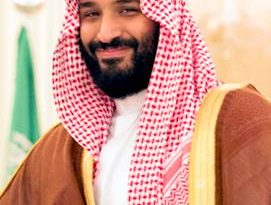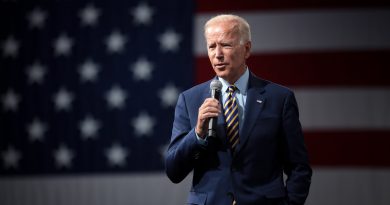Putin, Erdogan Butt Heads Over Downed Russian Plane
By Madison McHugh
Associate Editor
On November 24, a Russian all-weather attack aircraft flying over the Turkish-Syrian border was shot down by Turkish F-16s. A second plane moved out of the airspace before the attack.
According to the BBC, President Vladimir Putin said the two-member Su-24 was flying at an altitude of 19,685 feet when it was hit by an air-to-air missile and crashed in the Jabal Turkmen area of Latakia, Syria.
Both Russia and Turkey contest whether the plane entered Turkish airspace. In a letter to the United Nations Security Council, Turkey’s Permanent Representative Yasar Halit Cevik wrote that two aircraft of unknown nationality had approached, and ten warnings were issued over the span of five minutes via an “emergency channel.” Both planes initially ignored the warnings and flew into Turkey for 17 seconds and roughly 1.2 miles before one of the planes was shot down. The other left national airspace.
Putin claims that the Su-24 was over Syrian territory, 0.6 miles from the Turkish border, when it was hit. The Russian Defense Ministry adds that the aircraft remained within the Syrian borders, did not violate Turkish airspace, and did not receive warnings. The navigator who survived the crash, Captain Konstantin Murakhtin, told Russian television he had not received a warning as well. His pilot, Lieutenant Colonel Oleg Peshkov, was shot and killed by Syrian rebels while descending by parachute.
Russian air force commander General Viktor Bondarev released additional details on November 27, revealing Russian and Syrian radar data showing that the Turkish F-16s flew in the area for one hour and fifteen minutes before the incident. The missile penetrated the Russian aircraft 2 kilometers within Syrian airspace, and the timings could not have happened if the F-16s took off from their Diyarbakir air base at the moment the Russian aircrafts approached.
“They were poised to attack,” Bondarev said.
United States military officials said there were indications that the plane entered Turkish airspace for seconds and received the proper warning. However, Putin accused the U.S. military of knowing “about the location and time of our planes’ flights, and we were hit exactly there and at that time.”
The U.S. State Department denied any knowledge of Russia’s flight plan.
On November 28, Putin called for sanctions against Turkey following President Recep Tayyip Erdogan’s statement of regret.
“We are truly saddened by this incident,” Erdogan said. “We wish it hadn’t happened as such, but unfortunately such a thing has happened. I hope that something like this doesn’t occur again.”
According to the New York Times, the sanctions include a ban on some unspecified goods, as well as a ban on labor contract extensions for Turks working in Russia, effective January 1.
Additionally, the sanctions call for an end to chartered flights from Russia to Turkey, as well as the removal of Turkish vacation packages from Russian tourism companies.
Putin’s decree also calls for an end to visa-free travel between Russia and Turkey, along with tighter control over Turkish air carriers in Russia “for security reasons.” The decree was issued “to protect Russian citizens from crimes,” a Kremlin statement said.
In conjunction with the sanctions, Russia deployed long-range S-400 air defense missile systems to a Russian airbase in Syria, 30 miles south of the Turkish border, to protect Russian warplanes. The military warned it would shoot down any aerial targets that posed a potential threat to its planes.
Erdogan requested a meeting with Putin on the sidelines of the U.N. Climate Change Conference in Paris. However, the announcement came after he defended Turkey’s actions and criticized Russian operations in Syria.
“If we allow our sovereign rights to be violated, then the territory would no longer be our territory,” Erdogan said.
Since the start of the conference, Putin has yet to meet directly with Erdogan. Instead, Putin claims the reason Turkey attacked the Russian plane was to protect oil supplied by the Islamic State, according to reports by Euractiv.
“We have received additional data which confirm that Islamic State oil enters the territory of Turkey,” Putin said. “The decision to shoot down the plane was dictated specifically by a desire to defend supplies.”
Erdogan said that the accusations amounted to “slander,” and if any oil purchase from Islamic State is proven, he will resign from his post: “As soon as such a claim is proved, the nobility of our nation requires [me] to do this: I will not remain in this post. But I am asking Mr. Putin, would you remain?”
Additionally, Erdogan called on Putin to explain Russia’s purchases of Islamic State oil via Russia-Syrian citizens, which he said was confirmed by U.S. sources.
Turkey-Russia relations are unpredictable in the short run. BBC’s Turkey correspondent Mark Lowen says that the countries’ presidents have stark similarities, and it is supposed they will respond in the same way: with “tough talk and flexing of muscles.” The popularity of each president is “fueled by nationalism,” and it is believed that Turkish nationalism “undoubtedly” played a role in the decision to fire at the Russian plane.
However, with the threat of the Islamic State at the forefront following the Paris attacks, the countries have more on their plate to worry about. Lowen believes “a united front is slowly building against a common enemy. And that might cool heads now–the two sides need each other.”
Yet, the seriousness of the situation also proves a destabilizing factor: the incident is the first in over half a century that a NATO member has shot down a Russian plane.
According to Lowen, “Another trait that both strongmen share is unpredictability. And that is what’s perhaps most worrying.”


